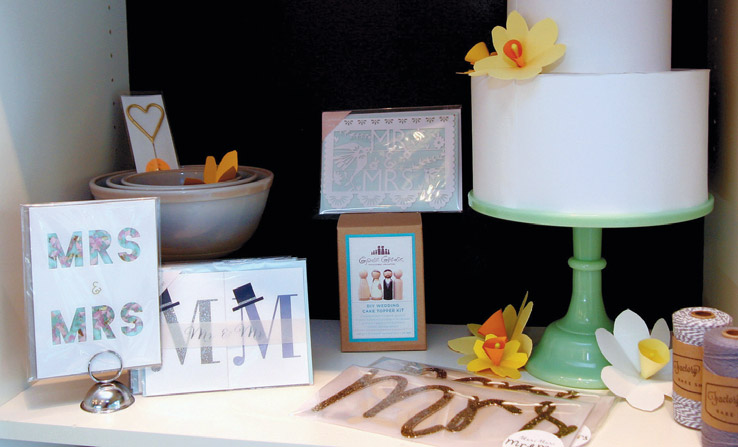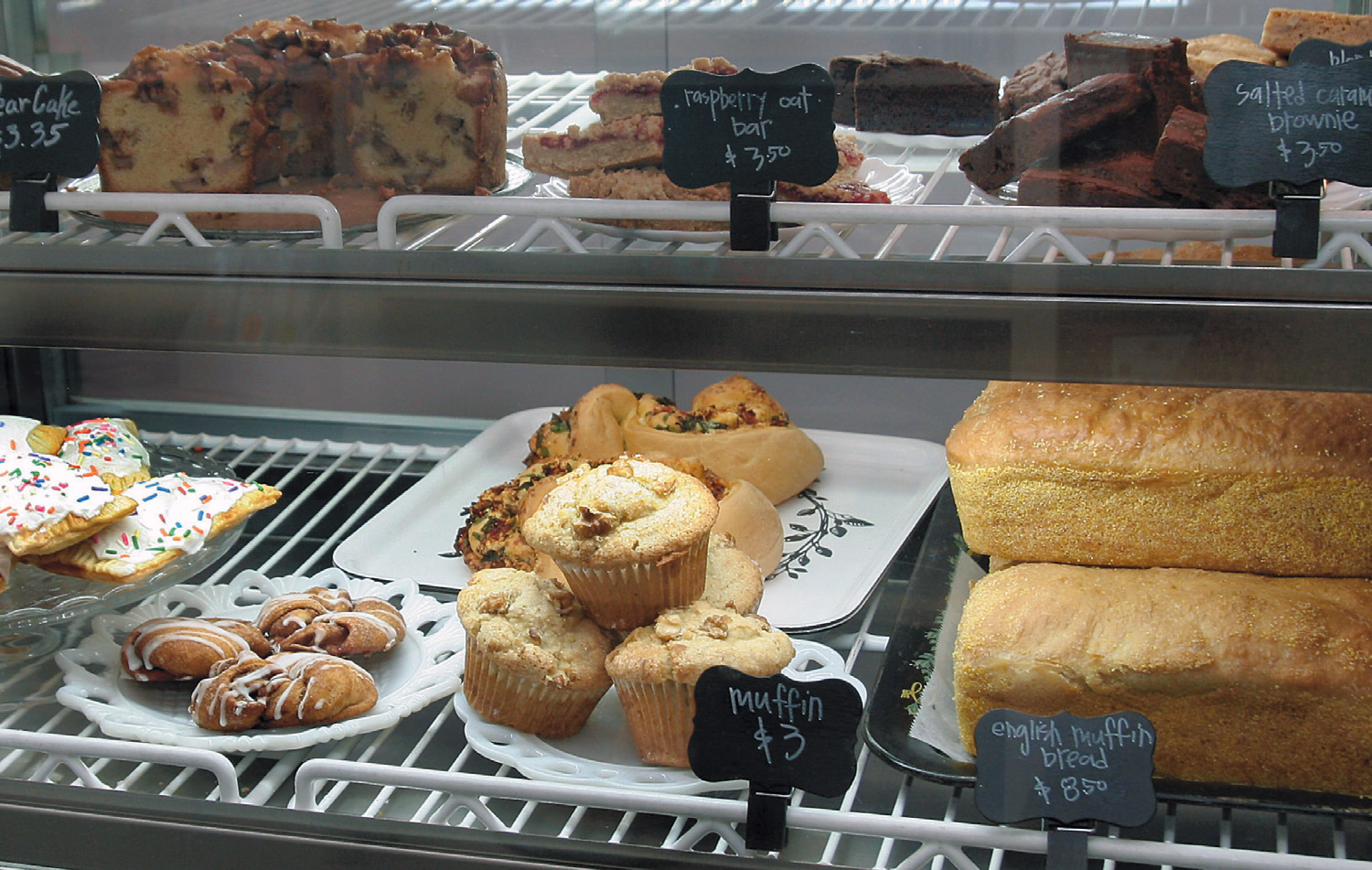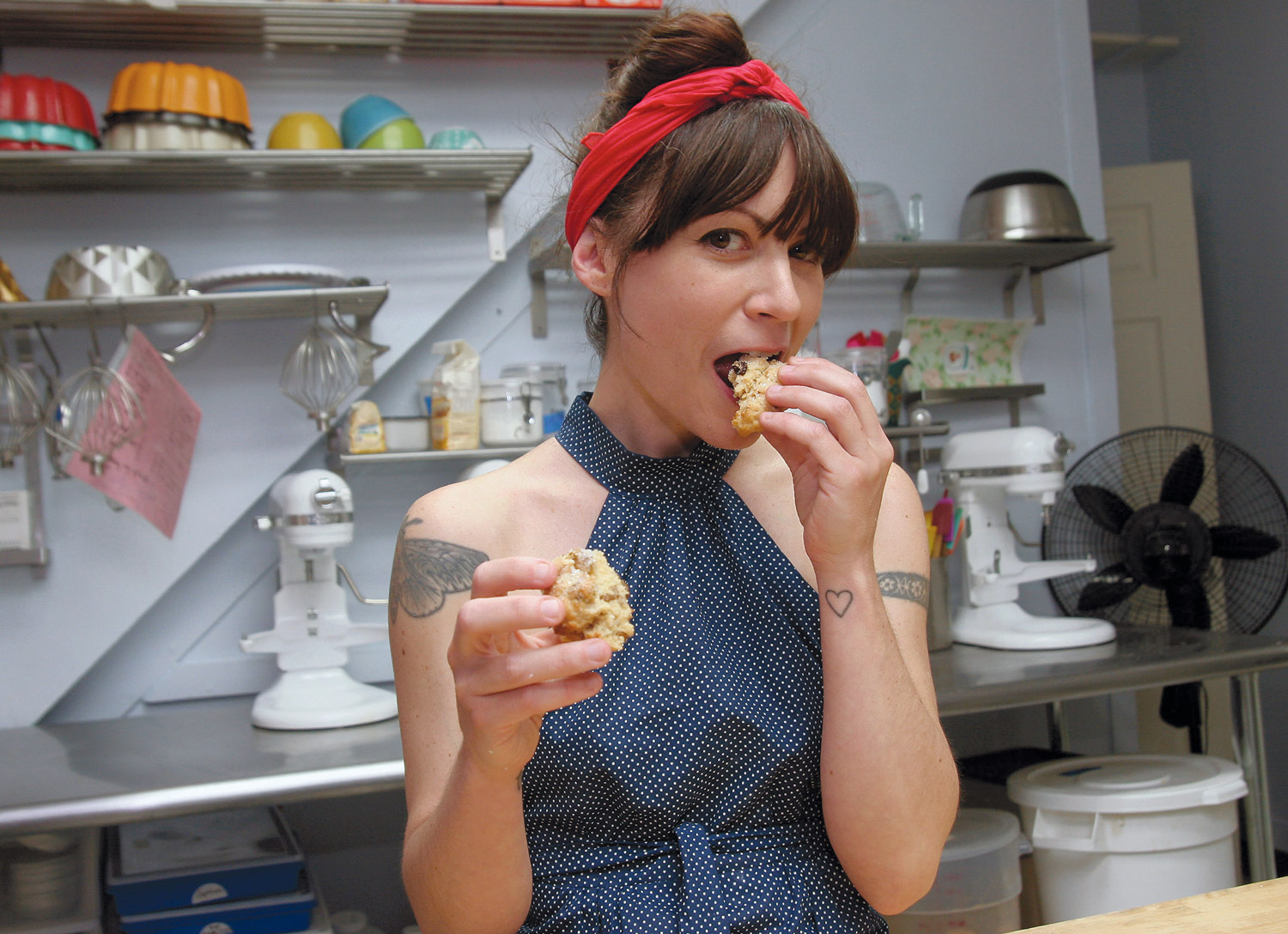Baking Up a Dream
How New Hope’s pastry maven got the dough to open her shop
Bakery owner might be one of the top fantasy jobs in the food industry, right up there with restaurant critic.
Kimberly Scola, owner of the year-old Factory Girl Bake Shop in New Hope, would know. She fields multiple emails per month from people asking how they can open a bakery like hers. Her reply is always the same: “Prepare to work really, really hard for almost no money, at least in the beginning.”
She doesn’t mean to be discouraging. “It’s just that the reality of my long hours and low salary doesn’t fit the idea most people have in their heads.”
Before Scola had her own brick-and-mortar shop, she was well aware of the amount of work involved. She baked in Flemington, New Jersey, at her sister and brother-in-law’s coffee shop, Factory Fuel, where her fudgy salted-caramel brownies, cloud-like scones, and oatmeal-cookie cream pies garnered a following.
“The baked goods became their own brand, of sorts,” she says. “So I started calling myself Factory Girl.” After three years working out of her sister’s kitchen, she felt ready to go off on her own.
Thanks to a tip from a friend (full disclosure: I’m the friend!), Scola learned that the owner of Pudge Cakes cupcake shop in New Hope was looking for someone to take over her lease and buy all of her equipment and fixtures.
“As an overthinker, the situation was ideal for me. Had I started with a raw space, I would have agonized for months about which freezer to buy and how the space should flow,” she says. “This way, I could simply paint and open the bakery within a month after signing the lease.”
Plus, she loved the location—it’s in a small, walkable river town that fills with tourists on nice days and weekends. New Hope was already home to C’est La Vie, a riverside French bakery, but with Scola’s creative takes on American-style baked goods, she felt Factory Girl would be different enough not to compete directly.
“I didn’t like the idea of begging for money,
so Kiva was a way for me to get help, not a
handout,” says Kimberly Scola, owner of
Factory Girl Bake Shop in New Hope.

“I thought the town needed a bakery where people could get a loaf of sandwich bread or a cookie for those 3 pm sugar cravings, along with party platters and special-occasion cakes,” she says.
She also wanted a place to experiment with the seasonal produce she gets from her CSA and ingredients she finds while foraging—like ramps, which she tucks into quiche, and honeysuckle, which she infuses into pastry cream and glazes for donuts.
A lifelong crafter and former Etsy-business owner, Scola also craved a space she could constantly update and decorate in her minimalistmeets- retro style. (On a recent day off, she relieved stress by making colorful paper cakes to set on the pastel Mosser Glass cake stands she sells at the shop.)
To make sure the shop would work, she quickly wrote a business plan. Her sister reminded her of unforeseen expenses, like refrigerator maintenance, hood cleaning, and apron purchasing. With very little credit history (“I hate debt,” she says, “so I never had a credit card”), Scola wasn’t eligible for a bank loan, so she borrowed money from her sister and her parents. (She currently pays her sister back in wholesale-priced baked goods.)
She also applied for an interest-free $7,000 loan from Kiva, the nonprofit organization known for giving micro-loans to women in developing nations to start agricultural businesses. Like crowdfunding sites Kickstarter and IndieGoGo, Kiva loans come from multiple backers, including a mix of people in the borrower’s own circle as well as strangers. The difference with Kiva is that the funders get paid back in small increments over the term of the loan.
“I didn’t like the idea of begging for money, so this was a way for me to get help, not a handout,” she says.
Until she settles all of her debts (she’s a little less than halfway there) and can give her employees raises, Scola will pay herself $350 after taxes per week to cover her personal expenses. Her low wages haven’t stopped her from occasionally supporting other Kiva projects, including the Black Squirrel fabric shop in Berkeley, California, started by a friend, and a small, woman-owned restaurant.
“I mean, really, am I going to miss the $25?” she says. “Plus, I get paid back and get to see someone else’s dream come true.”
Factory Girl Bake Shop
45 N. Main St., New Hope
267.740.2354
factorygirlbakeshop.com






